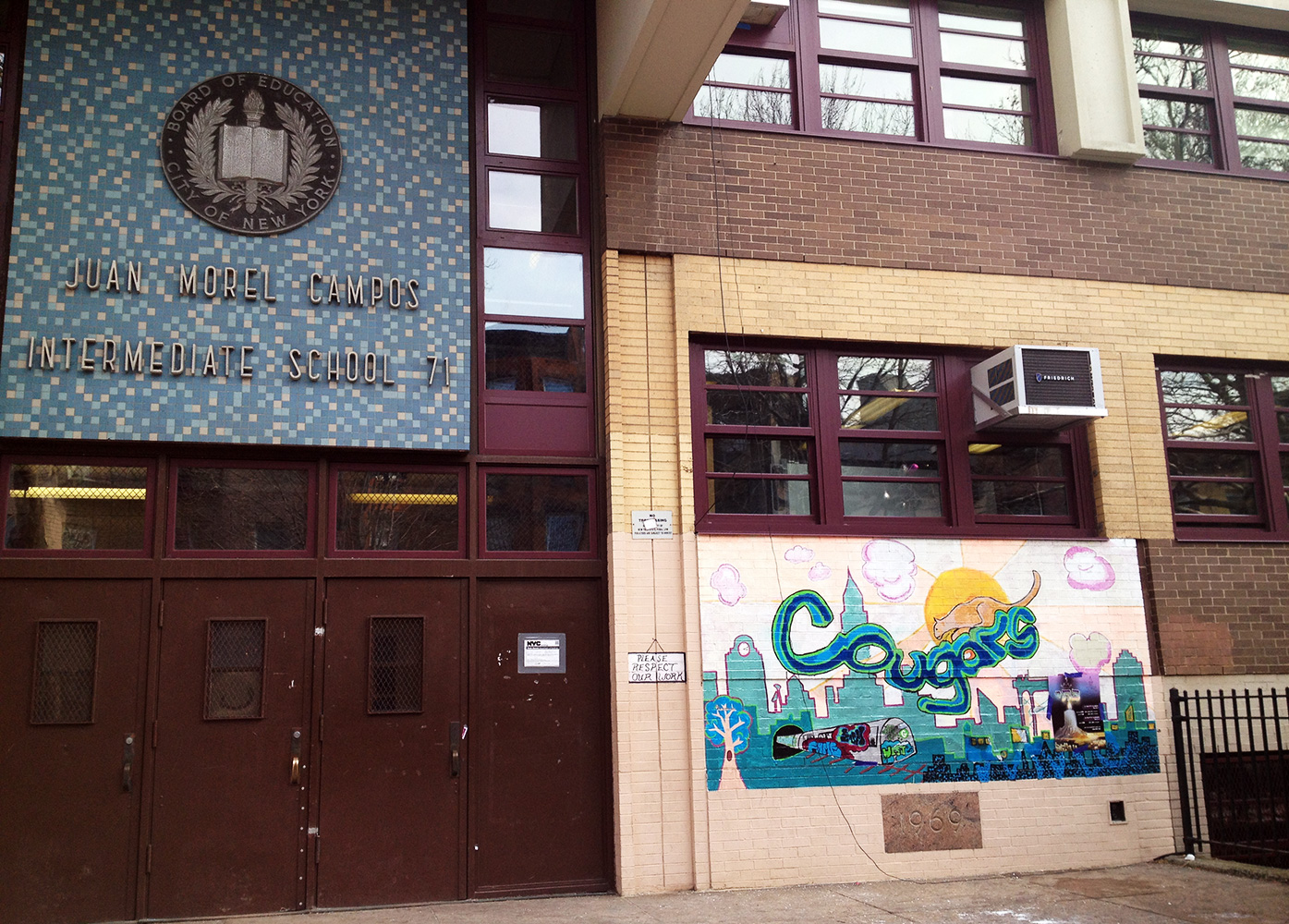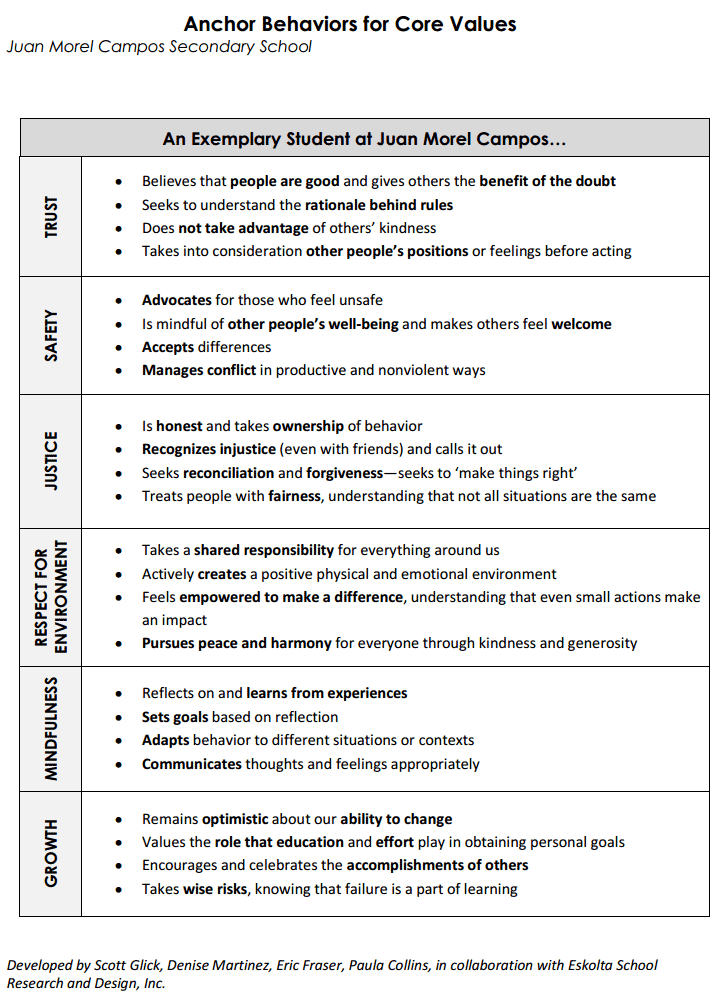What We Do: Design Projects >> Strength-Based Culture
Building School Culture with Core Values at Juan Morel Campos Secondary School
A growing body of research has shown that students’ academic mindsets can act as a lever to boost success in school and beyond.1 One way to build these mindsets is to help students connect school to personal and community values. To create a foundation for a more growth-oriented, student-centered school culture, Juan Morel Campos Secondary School (JMC), a secondary school in Williamsburg, Brooklyn, teamed up with Eskolta to develop a set of schoolwide core values and a structure for students and teachers to understand what it means to demonstrate those values. Using these as a guide, Eskolta worked with a group of teachers and instructors from Outward Bound to design and pilot a class focusing on school culture.
The project began when Principal Eric Fraser and a small group of teachers developed a set of schoolwide core values–Safety, Trust, Justice, Respect for the Environment, Mindfulness, and Growth– along with anchor behaviors defining what it means to demonstrate each value. Teachers recruited students for two pilot classes–one in middle school and one in high school–in which students would engage in lessons exploring these values more deeply. Outward Bound, an organization that helps youth build leadership skills, provided instructional mentoring and curricular support as they co-taught the classes with the pilot teachers. Surveys designed by Eskolta were utilized to gather baseline data on existing student mindsets and to track how these changed throughout the year. The Eskolta team, led by Emily Kleinman and Alicia Wolcott, worked regularly with the middle school and high school teachers to share observations, make adjustments to the class design, and reflect on practices to use as a model for shaping a future advisory program.
According to the data collected, as well as observations made by teachers, students’ understanding of how core values relate to their lives has grown over the course of the pilot. Students in the high school class have begun to take a more active role in the community. They created their own core values language, which not only helped them understand what each value meant but helped faculty understand how students perceive these values. For example, drawing from lessons they learned about respect for the environment, high school students developed their own surveys geared at making school improvements and met with Mr. Fraser to discuss their ideas. In another activity, high schoolers exercised leadership skills by facilitating sessions with middle schoolers. As the principal looks back on the work at the end of the first year of the pilot, he sees the opportunities, particularly at the high school level, that it provided for educators to discuss and improve on existing practices while setting the stage for a new approach to school culture and values at Juan Morel Campos.
_________________________________________________________________
1Farrington, C. A., Roderick, M., Allensworth, E., Nagaoka, J., Keyes, T. S., Johnson, D. W., & Beechum, N. O. Teaching adolescents to become learners. The role of noncognitive factors in shaping school performance: A critical literature review. (Chicago: University of Chicago Consortium on Chicago School Research, 2012)


